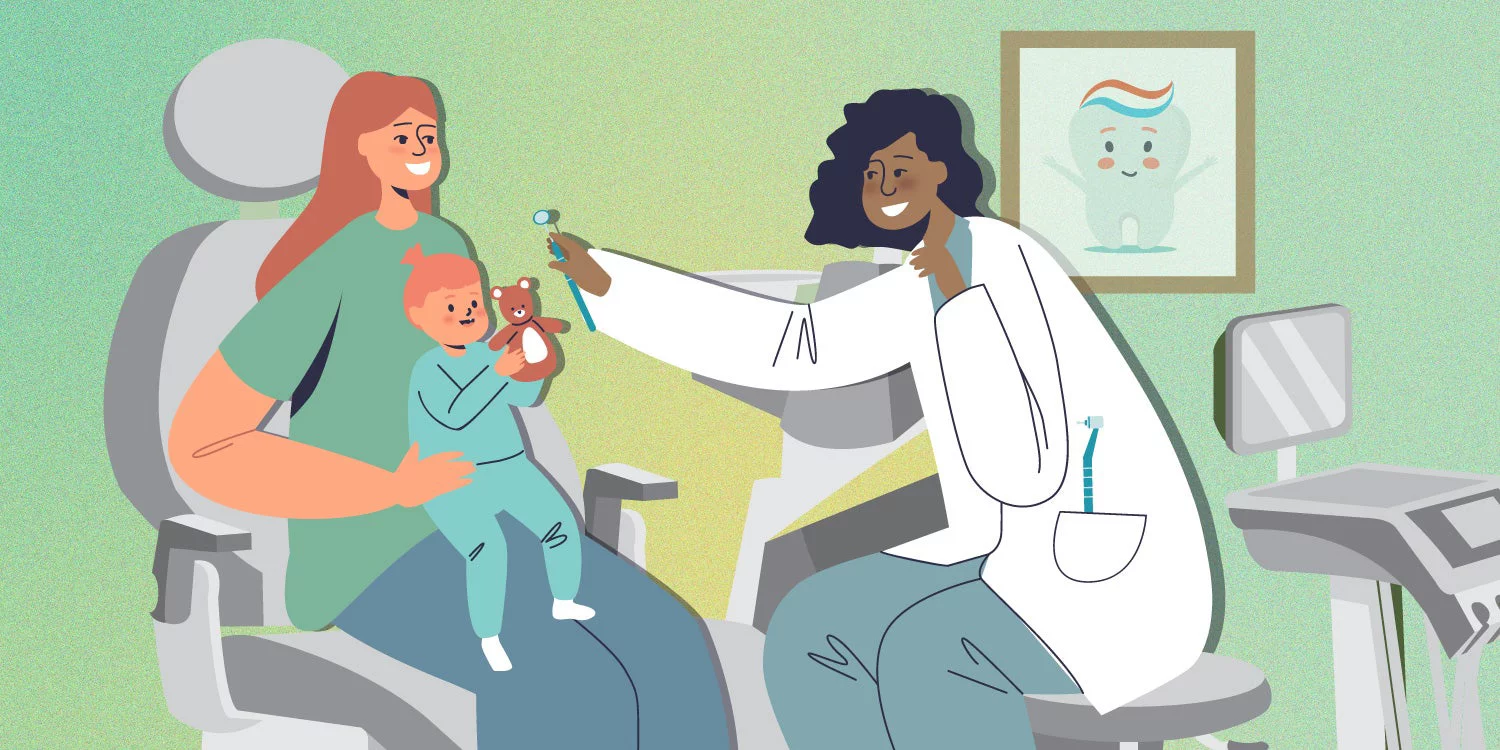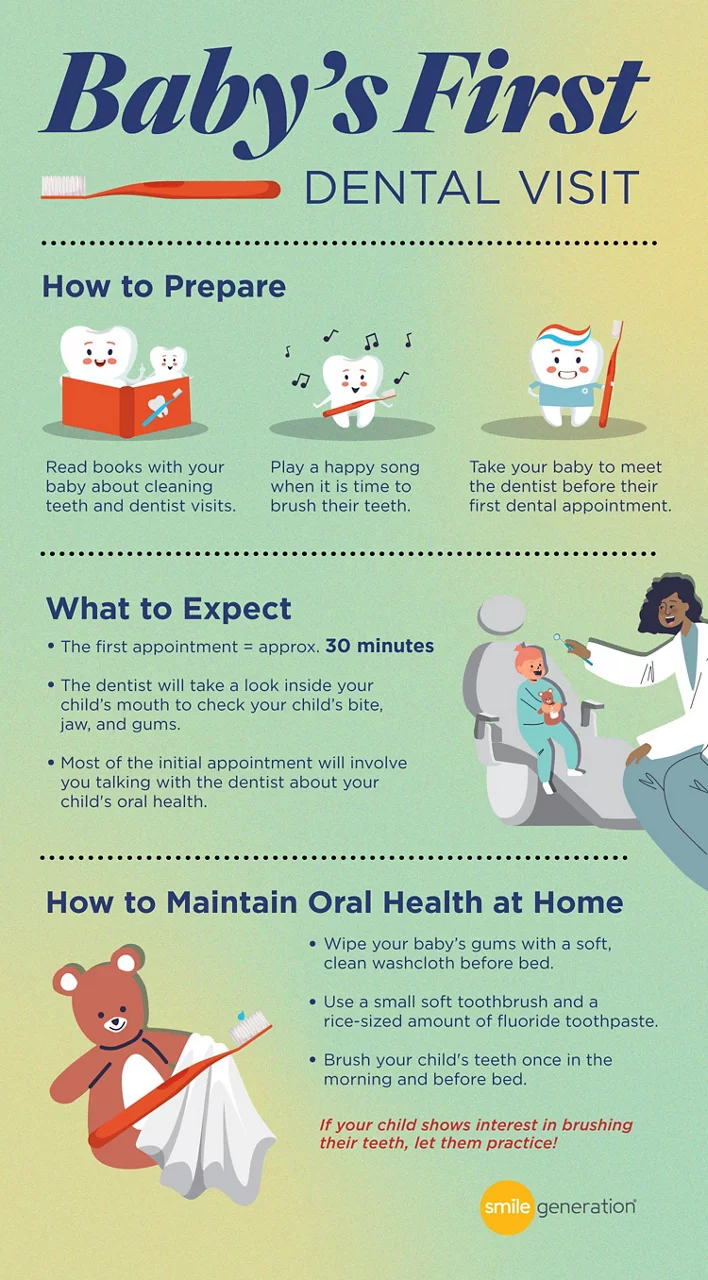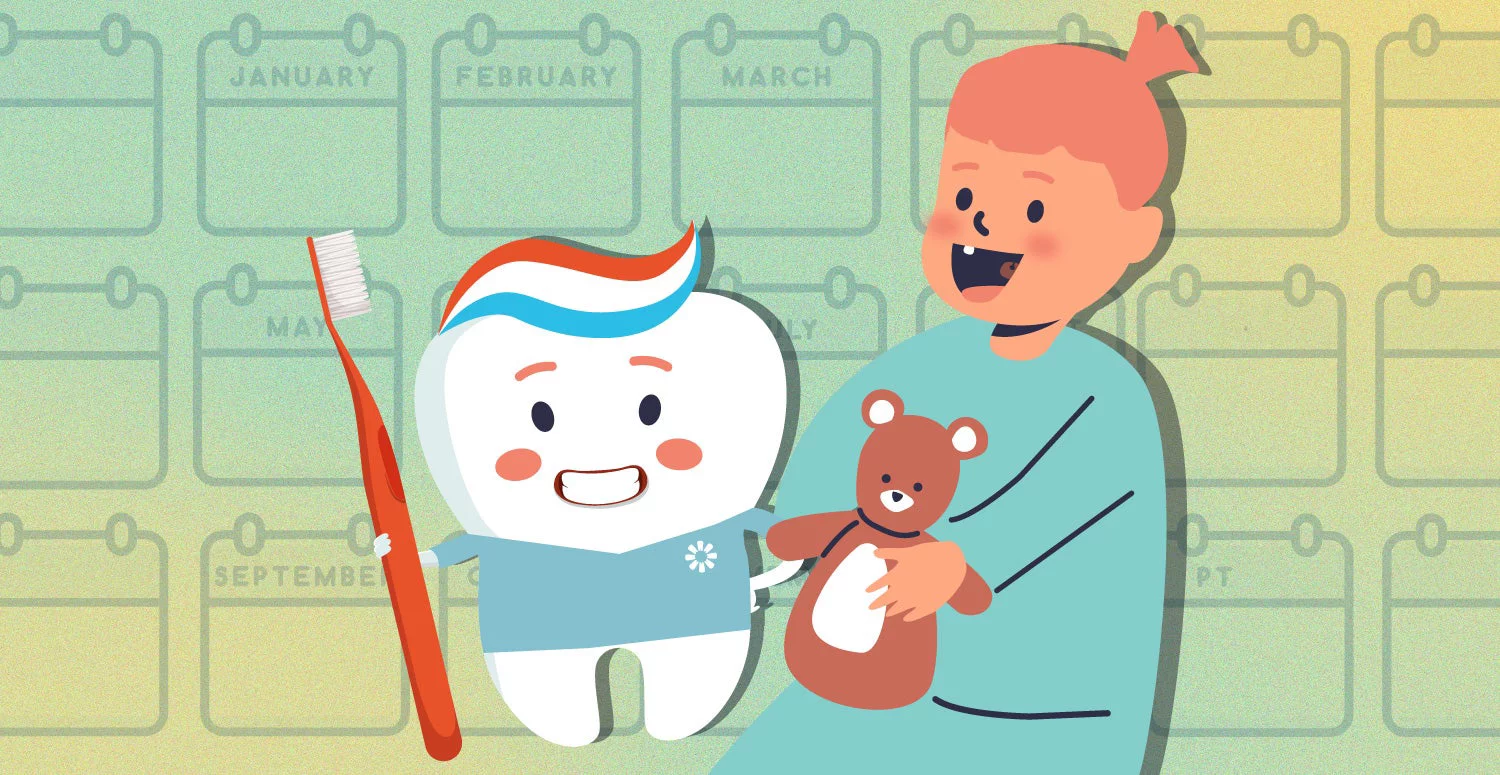While parents may understand the need to brush and floss their own teeth regularly, adding a new bundle of joy to your home means adding a new mouth that needs care and attention. You may still be adjusting to life with a baby, but as your baby begins cutting teeth, you will be responsible for brushing their teeth and making sure their mouth stays healthy.
Part of preventing tooth decay in babies involves taking your little one to the dentist for routine visits. The Mouth-Body Connection is crucial to your baby's overall health. You can help set your child up for a healthy mouth by making your baby's oral hygiene a daily priority.
Why Early Dental Care Matters
- Milk
- Carbohydrates like rice cereal
- Formula
- Fruit juices
- Teething cookies
- Fruit
First Dental Visit Timeline
Not only will the dentist check for any signs of tooth decay developing in your child’s primary teeth, but the appointment also aims to make going to the dentist familiar and comfortable for your child.
While tooth decay does not simply appear out of nowhere, cavities can develop over weeks and months through either improper brushing habits or because your child goes to bed after having a snack or drink that leaves sugars on the teeth. According to the CDC, 52% of children ages 6-8 have at least one cavity in their primary teeth.

Preparing for the Baby First Dental Visit
- Read books with your baby about cleaning teeth and dentist visits.
- Play a happy song when it is time to brush their teeth.
- Let your baby look inside your mouth with a flashlight, then ask if you can look inside your baby’s mouth to get them comfortable with someone shining a light inside.
- Take your baby to meet the dentist before their first dental appointment. Many dentists will let you schedule a consultation so your baby can meet the staff and see the office before they have to open wide.
- Talk positively about the dentist and be excited when it's time to go to the appointment. Smiling when talking about the dentist will send the right message to your baby that the dentist will help keep their mouth healthy.
Choosing a pediatric dentist or a general dentist who has an excellent rapport with children will help set your baby up for a positive experience at their first appointment.
What to Expect at Your Baby's First Dental Visit
- Most of the initial appointment will involve you talking with the dentist about your child's oral health. You can expect questions like:
- How often do you brush your child’s teeth?
- What kind of toothpaste do you use?
- What type of foods does your baby eat before naps or bedtime?
- Does your baby suck their thumb or use a pacifier?
- Does your baby go to bed with a bottle?
- You can help encourage your baby to open their mouth for the dentist.
- Some dentists may prefer that you hold your baby during the exam or that you stay in your child’s sight at all times.
- The dentist will take a look inside your child’s mouth to make sure no tooth decay is developing. They may also check your child’s bite, jaw, and gums.
- The first appointment shouldn’t be much longer than 30 minutes

Maintaining Baby's Oral Health at Home
Once your baby erupts their first tooth, with a small soft toothbrush and a rice-sized amount of fluoride toothpaste, be sure to brush your child's teeth once in the morning and before bed.
Signs of Dental Issues in Babies
- White or brown spots on your child’s teeth
- Bleeding gums
- Inflamed or red gums
- A loose tooth well before your child is five years old
- A chipped or cracked tooth
- Sensitivity with drinking cold liquids or from sucking on a bottle or thumb
Scheduled an Appointment
If you are looking for a qualified pediatric dentist or general dentist with years of experience with young patients, Smile Generation can connect you with a dentist in your community. Find the right dentist for your child and schedule an appointment today with our Find a Dentist tool.
Find your trusted, local dentist today!
Sources
- "Cavities." CDC, 25 Jan. 2021, https://www.cdc.gov/oral-health/data-research/facts-stats/fast-facts-cavities.html
- "Did You Know..." AAPD, 6 Oct. 2023, https://www.mychildrensteeth.org/globalassets/media/my-childrens-teeth/tips-for-parents-1.pdf
Smile Generation blog articles are reviewed by a licensed dental professional before publishing. However, we present this information for educational purposes only with the intent to promote readers’ understanding of oral health and oral healthcare treatment options and technology. We do not intend for our blog content to substitute for professional dental care and clinical advice, diagnosis, or treatment planning provided by a licensed dental professional. Smile Generation always recommends seeking the advice of a dentist, physician, or other licensed healthcare professional for a dental or medical condition or treatment.








